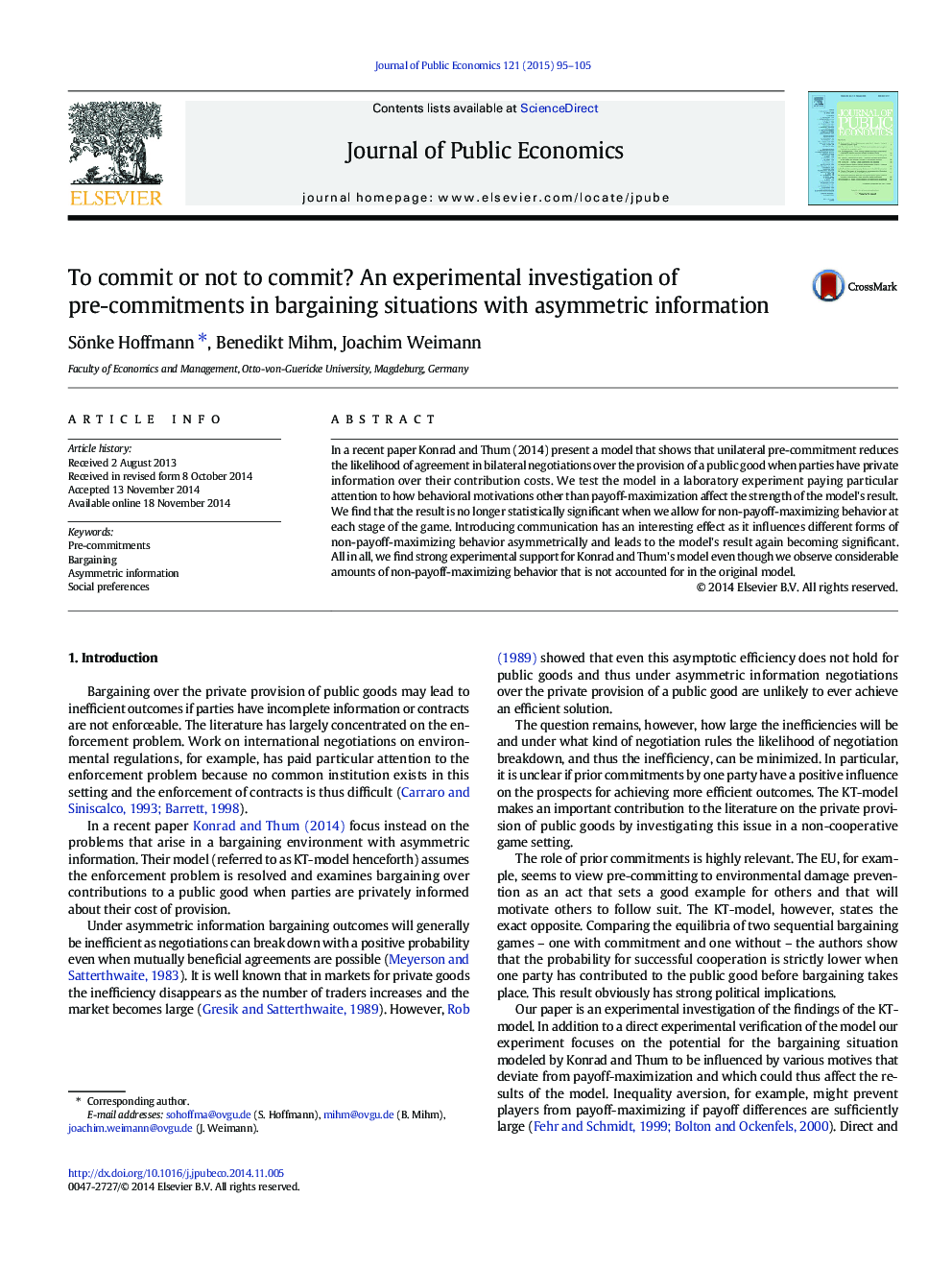| Article ID | Journal | Published Year | Pages | File Type |
|---|---|---|---|---|
| 969689 | Journal of Public Economics | 2015 | 11 Pages |
•We experimentally test a model of bargaining over a public good with incomplete information and pre-commitment.•We find strong support for the model’s main result under more realistic behavioral assumptions.•We identify for what parameter constellations of the model the effect of communication on the model’s result is strongest.
In a recent paper Konrad and Thum (2014) present a model that shows that unilateral pre-commitment reduces the likelihood of agreement in bilateral negotiations over the provision of a public good when parties have private information over their contribution costs. We test the model in a laboratory experiment paying particular attention to how behavioral motivations other than payoff-maximization affect the strength of the model's result.We find that the result is no longer statistically significant when we allow for non-payoff-maximizing behavior at each stage of the game. Introducing communication has an interesting effect as it influences different forms of non-payoff-maximizing behavior asymmetrically and leads to the model's result again becoming significant. All in all, we find strong experimental support for Konrad and Thum's model even though we observe considerable amounts of non-payoff-maximizing behavior that is not accounted for in the original model.
